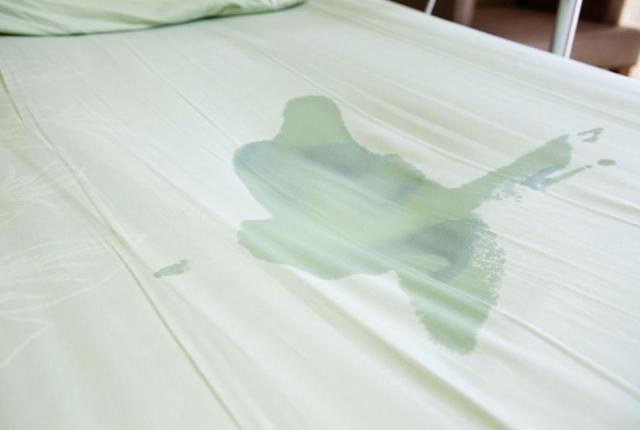Q: I have a very awkward problem and I am not exactly sure how to handle it. I used to damp my bed as a child but outgrew it when I turned 6. Nevertheless, for the past one year, I have actually been having problems controlling my bladder. On average, I wet the bed a minimum of thrice a week. At first, it wanted having a little too much to consume however over the past few weeks, I wet the bed even without touching alcohol. My relationship with my better half is really strained as she believes that I am behaving like a huge baby and she often mocks me for my accidents. I am a 50-year-old guy and this is really difficult. What is incorrect with me?
****
A: Grownup bed-wetting, medically called secondary enuresis is not as unusual as you would picture. One to three percent of grownups wet their beds. Although it can be humiliating to discuss, it ought to never be ignored due to the fact that it can be a symptom of an underlying illness.
Typically speaking, bed-wetting or involuntary night time urination is since of 3 things:
- The kidneys making a large quantity of urine through the night (generally, people pass more urine during the day).
- Not being able to awaken from sleep even when the bladder is complete.
- Having a bladder that can only keep a percentage of urine.
How does alcohol cause bed-wetting?
Alcohol triggers increased urine production through hormone changes. It reduces a hormonal agent in the brain that manages urine production. This hormone, known as ADH, usually avoids the kidneys from making too much urine. Excessive urine production caused by alcohol consumption can result in dehydration (frequently felt the morning after an alcoholic binge). Alcohol and caffeine can also aggravate the bladder and avoid it from holding urine at a normal capacity. It is, for that reason, harmful to drink alcohol and energy drinks or cola if you are having issues with bladder control.
Is alcohol the only problem in your case?
There is a very high possibility that your bed-wetting is not simply a repercussion of binge drinking-- specifically considering that you likewise damp your bed on nights when you have not taken any alcohol. You require to go for a health check-up. The initial medical review can be done by a doctor who will then refer you to a professional e.g. urologists ought to the requirement develop.
Causes of adult bed-wetting.
Hereditary: Individuals whose parents bed wet are likely to also have the exact same problem. The genetic link is normally a dominant consider adults who have damp their beds throughout their lives. Overactive bladder: the muscles of the bladder wall can in some cases contract inappropriately resulting in the urge to urinate even though the bladder is not full. Although this causes bed-wetting, you will also experience problems with bladder control during the day.
Prostate problems: at your age, prostate augmentation and prostate cancer could cause involuntary wetting of the bed. Normally, prostate enhancement is accompanied by signs such as a weak stream, difficulty initiating urination and dribbling of urine minutes after you end up peeing. Urinary system infections: usually these cause an urge to pee, frequent urination and often, even incontinence. You might also have a burning feeling in your penis as you urinate.
Beverages: as kept in mind earlier, alcohol and caffeinated beverages can lead to bladder control problems as they increase urine production and irritate the bladder. Prescription medication: some drugs used in the management of psychological health issues, hypertension, heart, kidney and liver problems can cause increased urine production and night time urination. Take any prescription medication to your physician throughout your evaluation to determine if they might be contributing to your bed-wetting.
Diabetes: this medical condition is understood to increase thirst, hunger and urine production (especially in the evening). For this reason, you need to be evaluated for it. Bladder cancer: this can trigger incontinence and might be connected with bloody urine.
Neurological disorders: any issues affecting the spine, degenerative brain conditions or a stroke can cause problems with incontinence.
Psychological issues: extreme psychological tension and anxiety can manifest in numerous methods-- and some people may establish continence problems.
Sleep apnea: People have episodes when they stop breathing whilst sleeping in this condition. Frequently, their partners report that they also snore.
What treatment is offered?
Your treatment will depend upon the underlying problem. If you have reoccurring urinary system infections, you will get antibiotics. There is likewise medication to handle diabetes, prostate issues, bladder over-activity and minimize urine production. Sleep apnea may require unique breathing support known as "Cpap"' to assist you sleep and breath better.What can you do for yourself?
- Withhold alcohol and limitation caffeine consumption until you have developed the reason for your bed wetting.- Programme yourself to pee every three to 4 hours (even during the day). Guarantee you have peed before going into bed (even though you do not feel like it).
- Set an alarm to wake you up in the night to go void your bladder.
- Unique underwear: The market has discreet absorbent briefs that can be worn to bed if you have incontinence issues.
- Protect your bed with unique bed mattress covers (offered in the majority of supermarkets).

Post a Comment